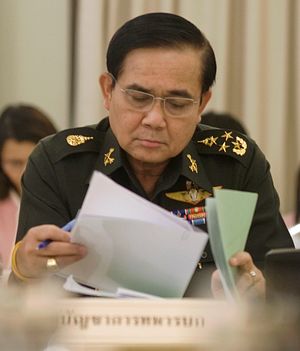Thailand’s government is imposing stricter rules on international travel that require people arriving from all countries to have health certificates stating they do not have the coronavirus, along with medical insurance covering the disease.
The measures fall short of the total bans on international flights many countries have enacted, but are expected to sharply cut the number of visitors. Thailand has been reluctant to endanger its large tourism industry, which accounts for about 12 percent of its economy, according to official figures.
The Civil Aviation Authority of Thailand on Thursday night issued the new guidelines covering arrivals, saying they would come into effect at midnight Saturday night Thai time.
The practicality of the measures is unclear, since many countries will not test people for the coronavirus unless they already have symptoms and meet other criteria.
The decision comes just two days after the government announced that medical certificates and insurance would be required only for people arriving from “disease infected zones” — South Korea, China, Macao, Hong Kong, Italy and Iran — or who had visited “ongoing local transmission areas” — the United States, parts of Japan, Britain and eight other European countries.
The health certificates now required for all arrivals must be issued within 72 hours of departure, and the insurance must cover $100,000 in medical costs.
Thai citizens also need to have health certificates but not insurance policies. In addition they will have to self-quarantine for 14 days. Quarantine rules for arriving foreigners remain unclear.
“Today we are trying to block those who bring the disease into Thailand, so that’s why I tell you that everyone who is about to enter Thailand should have a health certificate,” Prime Minister Prayut Chan-o-cha said. “That is an extension from four countries and two territories, but today we need it from every country as we attempt to control the outbreak in the country and lower the number of infected people as much as we can.”
Thailand on Thursday reported 60 new confirmed cases of the virus, bringing its total to 272. It has registered one death and discharged 42 recovered patients.
On Tuesday the government announced a raft of measures to combat the virus, including postponing a major holiday and shutting down schools nationwide. Provincial governors have been empowered to close venues where people gather, including massage parlors, entertainment places, gyms and sports venues. The popular tourist destination of Phuket on Thursday joined Bangkok and other provinces in applying such restrictions.
Postponing the annual public holiday of Songkran is meant to discourage the gathering and movement of large numbers of people. Millions of Thais normally travel from the big cities where they work to their hometowns during the three-day holiday to celebrate the traditional New Year. It will be rescheduled later this year.
By Busaba Sivasomboon of The Associated Press.

































